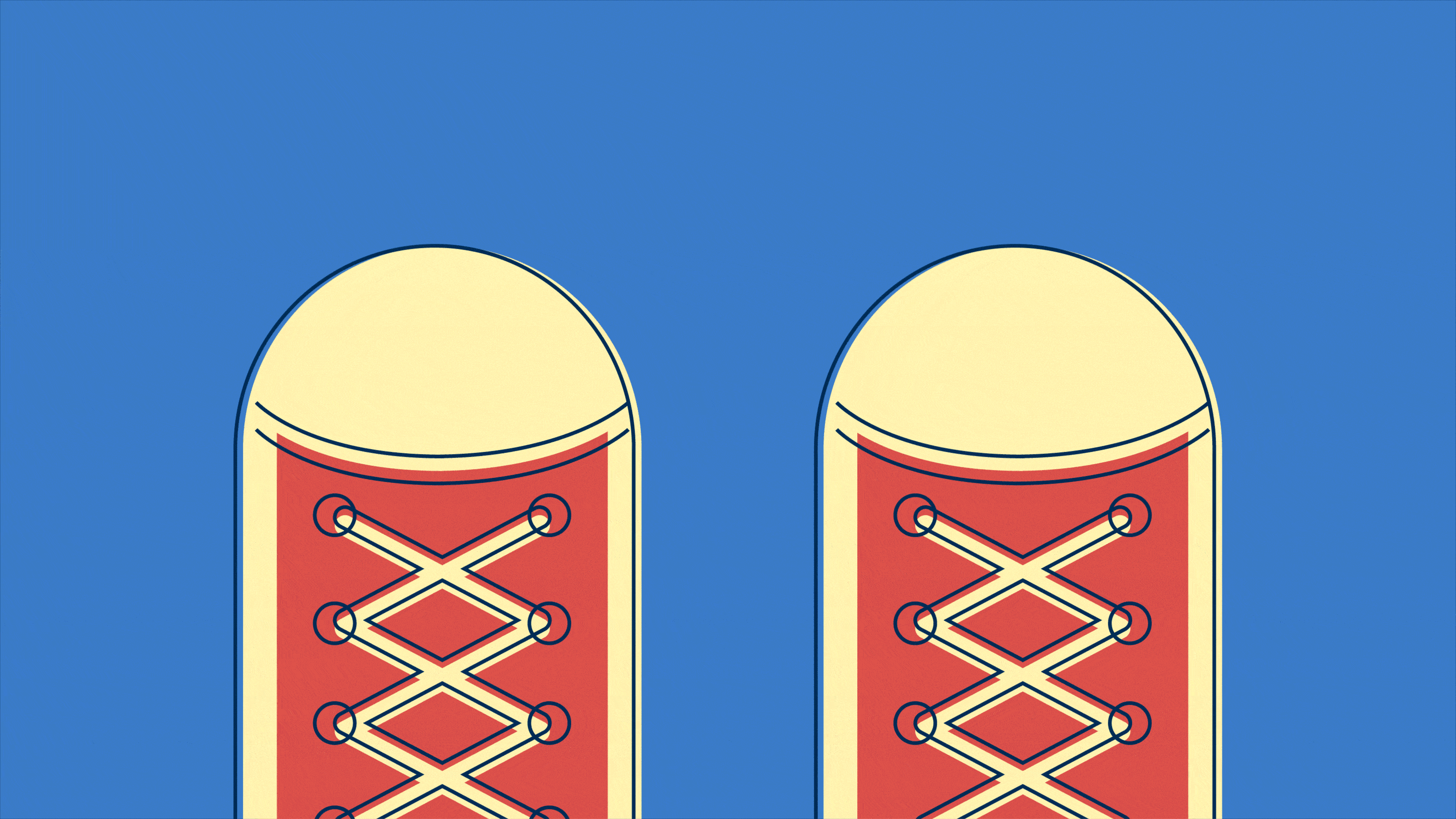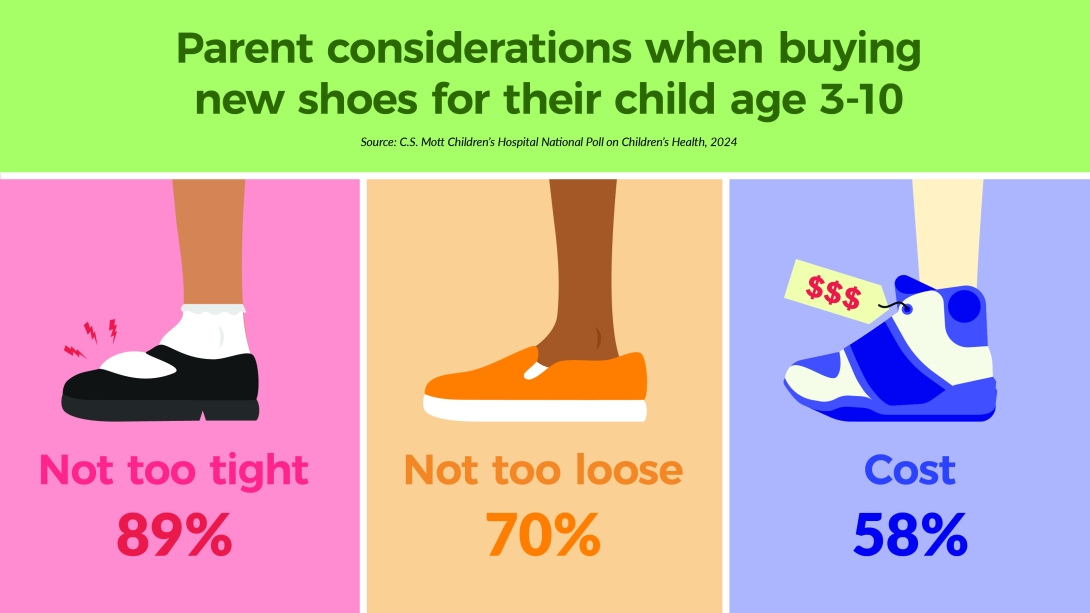Many parents are concerned about their child’s feet or the way they walk; some aren’t confident their children have well-fitting shoes
11:24 AM
Author |

As children grow, it may feel like they’re constantly outgrowing one clothing item essential for so many activities: their shoes.
But some parents in a national poll acknowledge a lack of confidence in ensuring their children are wearing properly fitting shoes – which experts say is necessary to support growth and prevent injuries.
One in seven parents also say they’ve had concerns about their child’s feet or the way they walk while one in 10 parents report their child has complained of foot pain, according to the University of Michigan Health C.S. Mott Children’s Hospital National Poll on Children’s Health.
“Proper foot health is foundational not only for a child's physical development but also for their overall well-being, allowing them to play and be active from their first steps as a toddler to teenage years,” said Sarah Clark, M.P.H, co-director of the Mott Poll.
“It’s important that parents choose the right footwear to support children’s bone, muscle and joint growth and also talk to their health provider about any concerns as early as possible.”
The report is based on 1,083 responses of parents of children ages three to 10 surveyed in February.
Overall, 15% of parents report a foot concern for kids, with a third pointing to growing pains as a possible factor, nearly a quarter suspecting it’s from walking on their tiptoes and fewer saying it could be because they’re tired from too much exercise.
Another one in seven parents blame foot pain and concerns on shoes that did not fit well while fewer believe flat feet, an injury or an ingrown toenail may be the cause. Just one in three parents are confident they could identify flat feet.
Choosing the right pair of shoes
With kids’ feet growing at a faster rate than most parts of their bodies, a child’s shoe size could change every few months, Clark says.
But just six in 10 parents polled were very confident their kids were wearing the right pair.
The biggest considerations in picking shoes for most parents is that they’re not too tight or too loose.
More than half also said cost was a significant factor.
“A key to promoting optimal foot health is well-fitting shoes, since improperly fitting shoes can aggravate the feet and inhibit proper development,” Clark said.

“Replacing shoes can be costly. But parents shouldn’t buy shoes too big in efforts make them last longer as the child grows or use worn out hand-me-downs. This can lead to unnatural walking patterns, inadequate ankle or calf support, and an increased risk for blisters or falls.”
More than a third of parents strongly consider a child’s preferred brand or style and a breathable material in picking shoes. About one in 10 parents said an important factor was whether shoes were fitted by a professional – and this group of parents are more confident in being able to tell whether shoes are the right fit and have good support.
Clark says it’s best practice to have the child try on multiple options in person so that they can be sized properly and to seek advice on fit and support from an experienced salesperson.
Addressing foot pain with a health professional
Half of parents say foot health was addressed during their child’s most recent well-child visit.
This may have included the provider watching their child walk, examining their child’s feet, or speaking with parents about foot health.
But parents who reported concern about their child’s foot health weren’t more likely to say the most recent well-child visit included a foot health discussion or examination.
“Growing pains are typically short-lived and harmless. But some causes of pain may require additional support or exercises or require other remedies,” Clark said.
“If a child complains of pain in the legs or feet for an extended period of time, parents should raise the issue with the child’s primary care provider.”

Explore a variety of health care news & stories by visiting the Health Lab home page for more articles.

Department of Communication at Michigan Medicine

Research Scientist
Want top health & research news weekly? Sign up for Health Lab’s newsletters today!





